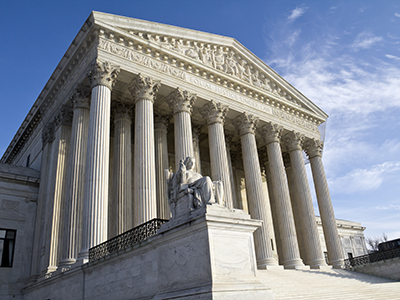Just over two years ago, after the passing of Justice Antonin Scalia but before the confirmation of Justice Neil Gorsuch, the U.S. Supreme Court deadlocked in a 4-4 tie over whether unions could require non-members to pay “fair share fees.” The case challenged the Supreme Court’s 1977 Abood v. Detroit Board of Education precedent that allowed public sector unions to force non-union members to pay fees covering the cost of collective bargaining so long as the workers were not made to pay for a union’s political or ideological activities.
Recently, in Janus v. AFSCME, the Supreme Court returned to the issue. Ultimately, the Court held that allowing public sector unions to require non-union workers to pay fair share fees violates workers’ First Amendment rights, thereby overturning the Abood precedent.



